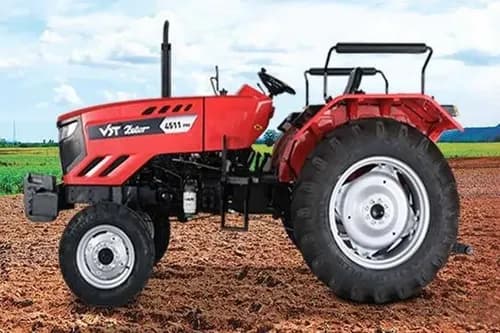Ad
Ad
Mustard Farming In India: Varieties, Cultivation, Harvesting and Processing
Mustard seeds, a versatile spice widely used in Indian cuisine. In this article, we have discussed mustard farming in India, from choosing the right variety to harvesting and processing.

Mustard farming is an ancient practice that has sustained agricultural communities for centuries. Mustard (Brassica juncea) belongs to the family of Cruciferae and is popularly used in Indian dishes. India is the number one producer of mustard globally.
Mustard seeds are used as a condiment in vegetables, curries and especially in south Indian dishes. The edible oil extracted from mustard seeds is widely used for cooking in India. In this article, we have discussed mustard farming in India, from choosing the right variety to harvesting and processing.
Regional Names Of Mustard Seeds In Various Indian Languages
Mustard seeds, a versatile spice widely used in Indian cuisine, go by different regional names across the diverse landscape of India. Here are the regional names of mustard seeds in various Indian languages:
Hindi:- Rai- Banarasi Rai- Kalee Sarson
Gujarati:- Rai
Kashmiri:- Sarisa- Issue
Telugu:- Avalu
Tamil:- Kadugo
Malayalam:- Kaduku
Punjabi:- Rai- Banarasi Rai- Kalee Sarson
The multiplicity of names reflects the rich cultural and linguistic diversity of India, where different regions have unique languages and dialects. Mustard seeds are not only a staple in Indian cooking but also hold cultural significance, adding a distinct flavour to various dishes.
Health Benefits of Mustard
- Helps in controlling symptoms of asthma.
- Prevents gastrointestinal cancer.
- Aids in weight loss.
- Relieves arthritic and muscle pain.
- Has anti-aging properties.
- Lowers cholesterol and stimulates hair growth.
Also Read: Potato Farming in India: Role of Potatoes in Indian Agriculture
Mustard Producing States in India
Rajasthan, Gujarat, Uttar Pradesh, West Bengal, Haryana, Madhya Pradesh, and Assam are the major mustard seed-producing states in India.
Types of Mustard in India
Several varieties of mustard are cultivated worldwide, each with unique characteristics suited to specific climates and purposes. The primary Types of Mustard in India include:
Yellow Mustard (Brassica juncea): This is the most common variety used for condiments. It has bright yellow seeds and a pungent flavour.
Brown Mustard (Brassica juncea): Known for its spicier taste, brown mustard seeds are darker in color and are often used to make Dijon mustard.
Black Mustard (Brassica nigra): Black mustard seeds are smaller and have a stronger flavour. They are widely used in Indian cuisine.
White Mustard (Sinapis alba): It has mild-flavoured seeds used in pickling and as a spice.
Climatic Requirements for Mustard Farming
Mustard grows well in subtropical climates. It is primarily grown as a Rabi season crop. Optimal temperatures for mustard cultivation range from 10°C to 25°C. The crop requires an annual rainfall of 625 - 1000 mm. Mustard does not tolerate frost, so it needs clear skies with frost-free conditions.
Soil Requirements for Mustard Farming
Mustard can be grown in a wide range of soils, from light to heavy loamy soils. Medium to deep soils with good drainage are best suited for mustard cultivation. Mustard prefers well-drained, fertile soils with a slightly acidic to neutral pH (6.0-7.5).
Adequate soil preparation is essential for a successful mustard crop. Farmers should plough the land deeply and incorporate well-rotted manure or compost to improve soil structure and fertility.
Preparation of Land for Mustard Farming
Plough the field 1 to 2 times and give two harrowings as part of field preparation. For second-crop cultivation, prepare the field by giving 2 crosswise harrowings after the Kharif crop.
Seed Treatment for Mustard Farming
Treat mustard seeds with thiram at 3 grams per kg to protect plants from seed diseases. Mustard has moderate nutrient requirements. Nitrogen is particularly crucial for its growth, and farmers often apply fertilizers containing nitrogen, phosphorus, and potassium. The application of organic manure or compost can also enhance soil fertility.
Irrigation for Mustard Farming
Mustard requires consistent moisture, especially during the germination and flowering stages. Adequate irrigation is essential, and the crop should receive water at regular intervals. However, waterlogging should be avoided, as mustard is susceptible to diseases in excessively wet conditions. Mustard is usually sown in September to October months.
Mustard Harvesting in India
Mustard plants are ready for harvest when the seeds have matured, and the pods turn yellow or brown. Harvesting should be done when the moisture content of the seeds is between 8-10%. The traditional method involves cutting the plants and letting them dry in the field before threshing.
Also Read: Barley Farming In India: A Promising Crop for Indian Farmers
Processing and Utilization
After harvesting, mustard seeds can be processed to obtain mustard oil. The leftover seed cake can be used as a high-protein animal feed. Mustard green leaves are also edible and can be used in salads or cooked as a vegetable.
Conclusion
Mustard farming in India is a profitable venture with a rich history and diverse applications. Successful cultivation requires consideration of factors such as climate, soil, and pest management. Whether grown for condiments, oil, or animal feed, mustard continues to be a valuable and versatile crop for farmers worldwide. Remember, mustard farming is not only economically viable but also contributes significantly to our cooking foods and health.
Features & Articles
Comprehensive Guide to Tractor Transmission System: Types, Functions, and Future Innovations
Learn about tractor transmission types, components, functions, and selection factors to enhance efficiency, performance, and agricultural productivity....
12-Mar-25 09:14 AM
Read Full NewsModern Tractors and Precision Farming: Transforming Agriculture for Sustainability
Precision farming enhances agriculture by integrating GPS, AI, and modern tractors for sustainable, efficient, and productive farming practices in India....
05-Feb-25 11:57 AM
Read Full NewsTop 10 Tractors Under 30 HP in India 2025: Guide
Top 10 tractors under 30 HP in India offer efficiency, affordability, and power, ideal for small farms with diverse agricultural needs....
03-Feb-25 01:17 PM
Read Full NewsNew Holland 3630 TX Super Plus vs Farmtrac 60 PowerMaxx: Detailed Comparison
Compare New Holland 3630 and Farmtrac 60 tractors by specs, price, and features to find the perfect fit for your farm....
15-Jan-25 12:23 PM
Read Full NewsSwaraj 735 FE Vs Eicher 380 2WD Prima G3: Detailed Comparison
The Swaraj 735 FE and Eicher 380 2WD Prima G3 are reliable, powerful tractors suited for various farming tasks....
14-Jan-25 09:41 AM
Read Full NewsHow to Choose the Perfect Tractor for Your Farm: A Comprehensive Guide
Choose the right tractor by assessing farm needs, horsepower, efficiency, comfort, and budget to enhance productivity and savings....
09-Jan-25 09:43 AM
Read Full NewsAd
Ad
As featured on:


Registered Office Address
Delente Technologies Pvt. Ltd.
M3M Cosmopolitan, 12th Cosmopolitan,
Golf Course Ext Rd, Sector 66, Gurugram, Haryana
pincode - 122002

























